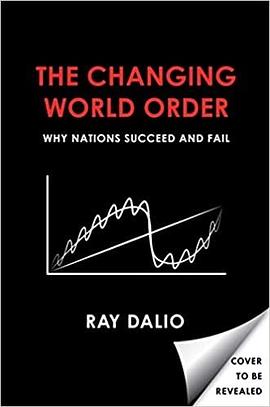

具体描述
A leading economic historian traces the evolution of American capitalism from the colonial era to the present—and argues that we’ve reached a turning point that will define the era ahead.
“The best one-volume history of American capitalism . . . It is impossible to understand the United States without understanding its economic history. This book, from one of the nation’s foremost historians of capitalism, brings that important and endlessly fascinating story to life.”—Sven Beckert, author of Empire of Cotton
Today, in the midst of a new economic crisis and severe political discord, the nature of capitalism in United States is at a crossroads. Since the market crash and Great Recession of 2008, historian Jonathan Levy has been teaching a course to help his students understand everything that had happened to reach that disaster and the current state of the economy, but in doing so he discovered something more fundamental about American history. Now, in an ambitious single-volume history of the United States, he reveals how, from the beginning of U.S. history to the present, capitalism in America has evolved through four distinct ages and how the country’s economic evolution is inseparable from the nature of American life itself.
The Age of Commerce spans the colonial era through the outbreak of the Civil War, a period of history in which economic growth and output largely depended on enslaved labor and was limited by what could be drawn from the land and where it could be traded. The Age of Capital traces the impact of the first major leap in economic development following the Civil War: the industrial revolution, when capitalists set capital down in factories to produce commercial goods, fueled by labor moving into cities. But investments in the new industrial economy led to great volatility, most dramatically with the onset of the Great Depression in 1929. The Depression immediately sparked the Age of Control, when the government took on a more active role in the economy, first trying to jump-start it and then funding military production during World War II. Skepticism of government intervention in the Cold War combined with recession and stagflation in the 1970s led to a crisis of industrial capitalism and the withdrawal of political will for regulation. In the Age of Chaos that followed, the combination of deregulation and the growth of the finance industry created a booming economy for some but also striking inequalities and a lack of oversight that led directly to the crash of 2008.
In Ages of American Capitalism, Jonathan Levy proves that, contrary to political dogma, capitalism in the United States has never been just one thing. Instead, it has morphed throughout the country’s history—and it’s likely changing again right now.
作者简介
Jonathan Levy is a professor in the Department of History and the John U. Nef Committee on Social Thought at the University of Chicago. His first book, Freaks of Fortune: The Emerging World of Capitalism and Risk in America, won the Organization of American Historians’ Frederick Jackson Turner Award, Ellis W. Hawley Prize, and Avery O. Craven Award, as well as the American Society for Legal History’s William Nelson Cromwell Book Prize. He lives in Chicago, Illinois.
目录信息
读后感
评分
评分
评分
评分
用户评价
In Levy’s telling, each age of American capitalism represents a fresh effort to refashion the relationship between government and markets in response to major disruptions to the old economic order. Levy is an unabashed Keynesian, he describe the crucial importance of investment and the necessary role of government in directing and sustaining it.
评分In Levy’s telling, each age of American capitalism represents a fresh effort to refashion the relationship between government and markets in response to major disruptions to the old economic order. Levy is an unabashed Keynesian, he describe the crucial importance of investment and the necessary role of government in directing and sustaining it.
评分In Levy’s telling, each age of American capitalism represents a fresh effort to refashion the relationship between government and markets in response to major disruptions to the old economic order. Levy is an unabashed Keynesian, he describe the crucial importance of investment and the necessary role of government in directing and sustaining it.
评分In Levy’s telling, each age of American capitalism represents a fresh effort to refashion the relationship between government and markets in response to major disruptions to the old economic order. Levy is an unabashed Keynesian, he describe the crucial importance of investment and the necessary role of government in directing and sustaining it.
评分In Levy’s telling, each age of American capitalism represents a fresh effort to refashion the relationship between government and markets in response to major disruptions to the old economic order. Levy is an unabashed Keynesian, he describe the crucial importance of investment and the necessary role of government in directing and sustaining it.
相关图书
本站所有内容均为互联网搜索引擎提供的公开搜索信息,本站不存储任何数据与内容,任何内容与数据均与本站无关,如有需要请联系相关搜索引擎包括但不限于百度,google,bing,sogou 等
© 2026 book.wenda123.org All Rights Reserved. 图书目录大全 版权所有




















